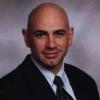Orthopedic Surgeon discusses diagnosis and treatment of hip replacement.
Orthopedic Surgeon, discusses Knee Replacement Surgical Options.
Orthopedic Surgeon, discusses MCL (Medial Collateral Ligament) knee injuries.
Orthopedic Surgeon, discusses carpal tunnel syndrome symptoms and treatment including physiotherapy, bracing and surgical options.
What is Local Orthopedic Surgeon
If you’ve suffered an orthopedic injury or are recovering from an orthopedic surgery, there’s a good chance you’ll work with a local orthopedic surgeon. A local orthopedic surgeon is a doctor who focuses on treating disorders of the musculoskeletal system such as hip bursitis. The musculoskeletal system is made up of the bones, joints, ligaments, nerves, tendons and muscles. Some of the conditions a local orthopedic surgeon may treat include carpal tunnel syndrome, rotator cuff tear, ankle sprain, triangular fibrocartilage wrist injury, arthritis and spinal stenosis.
A local orthopedic surgeon may perform hip and knee replacements, arthroscopic shoulder surgery, ankle surgery, disc surgery and other back/spinal surgeries and MCL and ACL repair surgery. They may also perform non-surgical treatments such as cortisone injections. Depending on your orthopedic condition, injury or surgery, you may also work with a local physiotherapist, athletic therapist, occupational therapist and local registered dietitian.
Often seeing your local family Physician is a great starting place for referrals to your local Massage Therapist or your local chiropractor to help with massage and skeletal adjustments. A local Physiotherapist or local athletic trainer can help with strength and bruised muscles. Acupuncture is often recommended for chronic pain in association with your local physiotherapist
The treatment for your meniscus tear depends on what type it is and how big it is. In most cases a meniscal tear can be treated with the RICE protocol (rest, ice, compression and elevation), anti-inflammatories, bracing and physiotherapy to stretch and strengthen the muscles of the knee. If surgery is required, an orthopedic surgeon will perform arthroscopic surgery to prevent further damage to the knee.
Carpal tunnel release/ Trigger finger release: Surgical Notes
Following the procedure, a dressing will have been applied. Post operative pain management includes 1000mg of Tylenol or 400 mg of Ibuprofen every 6 hours. These medications can be taken together and it is strongly recommended that you combine the maximum dose of both medications at the same time during the first 24 hours. Move your fingers aggressively so as to create a full closed fist followed be a full open hand. Hand swelling can increase for 2-3 days after the procedure.
Do not remove or wet the dressing for 48 hours after the surgery. The dressing can be removed after 48 hours. You may then gently wash the wound with soap and water. Sutures will dissolve internally over several weeks. Do not soak the wound for 2 weeks. A light application of antibiotic ointment (like Polysporin) is recommended. After 2 weeks, begin deeply rubbing the surgical site as hard as you can to help soften the usual hardness that increases around the surgical site for 6 weeks. This will ultimately resolve, but it might take many months. In most cases a meniscal tear can be treated with the RICE protocol (rest, ice, compression and elevation), anti-inflammatories, bracing and physiotherapy to h stretch and strengthen the muscles of the knee.
Most patients experience numbness at nighttime or in the morning, as the tendons swell overnight. After they wake up and move their fingers, the fluid moves out of the tendons and the numbness usually goes away. However, as carpal tunnel syndrome symptoms worsen, patients experience numbness and pain in the daytime whenever the wrist is bent or extended. Pain is felt in the palm of the hand and the forearm, with occasional radiation up to the shoulder.
People whose jobs involve heavy gripping or vibrating tools often develop carpal tunnel syndrome. Other risk factors include hypothyroidism and inflammation of the tendons from rheumatoid arthritis. Many pregnant women develop carpal tunnel syndrome as a consequence of the swelling that they have through pregnancy. In most cases, people develop carpal tunnel syndrome simply from being born with a small carpal canal. It can affect one or both hands, and pain can be continuous or intermittent.
Osteoarthritis is the most common reason for knee replacement surgery. It is a degenerative joint disease that occurs when the protective cartilage in the knee joint wears away over time, leading to pain, stiffness, and reduced range of motion. However, knee replacement can also be performed for other conditions such as rheumatoid arthritis and psoriatic arthritis, which are autoimmune diseases that can cause inflammation and damage to the knee joint.
During knee replacement surgery, the damaged parts of the knee joint, including the ends of the femur (thigh bone) and tibia (shin bone), are removed and replaced with artificial components made of metal and plastic. The metal implants replace the damaged bone surfaces, while the plastic spacer acts as a cushion between the metal components, allowing for smooth movement.
Knee replacement surgery can be performed as a total knee replacement, where both sides of the knee joint are replaced, or a partial knee replacement, where only the affected part of the knee joint is replaced. The choice of procedure depends on the extent of the knee damage and the individual's specific condition.
seful Resources
Canada
Royal College of Physicians and Surgeons of Canada
Canadian Orthopaedic Association
Northwest Territories
Nunavut
United States of America
National Provider Identifier (NPI)
American Academy of Orthopaedic Surgeons
Australia
Australian Health Practitioner Regulation Agency
Australian Society of Orthopaedic Surgeons
New Zealand
Medical Council of New Zealand
New Zealand Orthopaedics Association
United Kingdom
Royal College of Surgeons of England
Ireland
Royal College of Surgeons in Ireland
South Africa
Health Professions Council Of South Africa
South African Orthopaedic Association
India




